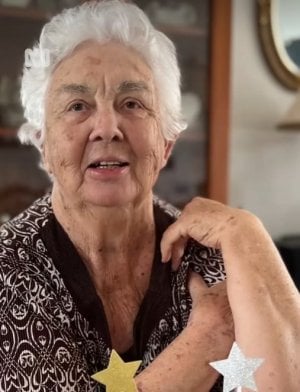Tragic overdose: Elderly Aussie’s death sparks outcry for accountability in healthcare standards
- Replies 22
When we entrust our loved ones to the care of medical professionals, we do so with the belief that they will be treated with the utmost care and expertise.
However, a tragic incident involving a patient's death at a private hospital has raised serious concerns about medical practices and protocols.
The case has sparked discussions about patient care and the responsibilities of healthcare professionals, highlighting the critical need for transparency and accountability in medical settings.
As investigations unfold, the community is eager for answers regarding the circumstances surrounding this tragic event and its implications for healthcare standards.
The case of Sheila Thurlow, an 85-year-old woman who died after being administered a fatal overdose of morphine at North West Private Hospital in Brisbane, was meant to be straightforward—a pain pump inserted into her spine to help manage the severe pain caused by metastatic cancer.
This procedure, recommended by her doctor, was intended to improve her quality of life.
However, due to a catastrophic error, Sheila was given 1,000 times the intended dose of morphine, leading to her untimely death.

The incident has left Sheila's family grappling with grief and seeking answers. Her husband, Raymond, recounted the harrowing experience.
‘I miss her terribly. It came as a big shock,’ he lamented.
‘One moment, I was taking her to the hospital; the next moment, she was deceased.’
Sheila was admitted to Ramsay Health Care's North West Private Hospital (NWPH) in Brisbane in June 2022 due to severe pain from metastatic cancer.
Her doctor suggested a pain pump insertion at NWPH, hoping it would improve her quality of life.
Although the family found it odd that the surgery was scheduled for a Saturday when only minimal staff would be present, they placed their trust in the medical team's expertise.
At approximately 6:30 AM on Saturday, Raymond dropped his wife off at the hospital, assuring her he would see her soon.
‘I left the hospital thinking this will all be over fairly soon; they won't want me sitting around. [But hours later] I rang the hospital and…the [doctor] said the procedure did not go as planned,’ Raymond narrated.
‘He said Sheila was injected with…1,000 times…the morphine she should have been given.’
Raymond recognised the gravity of the situation, hurried to the hospital, and shared his concerns with his children, Dominic, Theresa, and Maria.
Theresa, his eldest daughter, made every effort to reach the hospital but was unable to say goodbye as her journey back from the Northern Territory was lengthy.
‘It was tragic for all of us,’ Raymond shared. ‘We were with Sheila, we were holding her hand…and we just couldn't believe what was happening before our eyes.’
The family was informed by hospital staff that if Sheila could last until 10 PM that night, she was likely to survive.
Although she was administered naloxone, a drug used to reverse overdoses, her condition continued to deteriorate.
The following morning, the family received a call from the hospital notifying them of her passing.
‘It's very difficult to understand how this all came about,’ Raymond said. ‘We were absolutely dumbfounded as to how this could've all taken place.’
Sheila's autopsy report stated that her cause of death was ‘morphine toxicity’ and indicated that the morphine level in her blood before her death was ‘within the lethal range’.
The report noted that the pump was inserted ‘without any issues’ and that a dosage of 100 micrograms (mcg) of morphine was intended to be given as a spinal block.
‘Post-surgery, she was observed…with shallow breathing after being admitted to the intensive care unit,’ the report stated.
‘A review of her medical notes indicated that she was actually administered 100mg of morphine (1000x more than intended dosage).’
A submission to the Office of the Health Ombudsman (OHO) was also obtained from the hospital regarding a complaint filed by the family.
The submission admitted that the procedure had never been carried out at the facility and that the nursing staff had not received any training for it.
It also disclosed that ‘one of the nurses “Googled” the procedure the evening before in order to familiarise themselves’ with the process.
The submission further indicated that there were no written protocols or procedures established for the operation, and no formal ‘safety huddle’ was held to outline the roles and expectations of the staff in the operating room.
It also mentioned that the surgery was planned for a Saturday, meaning ‘that management and education staff, who would ordinarily be available on weekdays, were not able to be accessed to provide support to staff who were unfamiliar with the procedure’.
According to the document, a physician requested the morphine from the hospital pharmacy a week before the procedure.
He verbally informed the pharmacy that the standard dosage for the pump was 80mg of morphine, and the pharmacist confirmed that 100mg of morphine was available in 5ml ampoules, the submission stated.
It was eventually decided that ‘a spinal anaesthetic and sedation would be a safer option than a general anaesthetic, due to [Sheila's] age and co-morbid condition’; however, the change in plan was ‘at no point prior or during the procedure’.
The submission further stated that there was ‘confusion between the nursing staff and the medical practitioners…relating to the dose of the morphine in the syringe…[which] ultimately led to the incorrect dosage…being administered’.
It also disclosed that nursing staff signed out the identical dosage of morphine for another patient who was set to receive the pain pump that morning.
When asked whether this dosage was administered to the other patient, a North West Private Hospital spokesperson confirmed that ‘there was no second incident relating to another patient’.
For the past two and a half years, Sheila's family has struggled to secure a financial settlement with the hospital.
However, their primary desire is to obtain thorough answers regarding the circumstances of her death to prevent a similar tragedy from occurring in the future.
‘I think we deserve some answers. It's the least they could do,’ Raymond said. ‘Two and a half years have elapsed, and we're no closer to the truth.’
Sheila's son Dominic is eager for a coronial inquest to be arranged promptly so that his father can witness it.
‘Whichever party or parties failed in their execution of their duty need to be held accountable,’ he asserted.
‘I want to hear a formal sorry and some sort of…remuneration to offset the great hardships we've already endured as a family.’
Dominic believes his mother still had a few years to live and that his family was deprived of valuable time with her.
‘She would have wanted to say her final goodbyes to her husband, to her children, to her grandchildren, but she didn't have the chance,’ he lamented.
‘She was a gentle human soul. I miss her a lot. I miss her terribly.’
Following communication, a representative from the Coroners Court of Queensland confirmed that ‘a decision has been made to hold an inquest and the CCQ are hopeful to hold a [pre-inquest conference] before the end of the year’.
They added that this was ‘dependent on receipt of outstanding material’.
A spokesperson for North West Private Hospital expressed their ‘thoughts remain with the family in relation to the death of their beloved family member, Sheila’.
According to the spokesperson, they were ‘limited’ in their capacity ‘to respond to the majority of the matters raised’ because of ‘privacy restrictions and… legal, coronial and other regulatory processes underway’.
‘North West Private Hospital has taken this case very seriously, implementing a range of immediate actions and conducting a comprehensive incident investigation which included participation by external experts,’ they stated.
‘A Safety Lessons Learned document has been disseminated with a list of required actions to mitigate risk.’
The spokesperson mentioned that the hospital had ‘carried out open disclosure with the family’, provided details about ‘the incident investigation findings and recommendations’, and ‘conveyed our sincere apology for the tragic outcome’.
‘In relation to the issue of compensation, we are waiting for the lawyers for the family to institute the necessary processes pursuant to the Personal Injuries Proceedings Act and we will actively engage in that process once properly commenced,’ they added.
Sheila Thurlow's heartbreaking story highlights a troubling pattern in the healthcare system, where lapses in communication and protocol can lead to devastating consequences.
As investigations into her case continue, concerns about patient safety and the need for stringent medical practices grow.
Similarly, another tragic incident at the Royal Melbourne Hospital underscores the dangers of medical missteps, as a post-colonoscopy error resulted in a man's untimely death.
Both cases serve as stark reminders of the critical importance of proper procedures and vigilant care in our medical facilities.

What are your thoughts on this tragic case? How could we ensure the safety of our healthcare experiences? Let us know your insights in the comments below.
However, a tragic incident involving a patient's death at a private hospital has raised serious concerns about medical practices and protocols.
The case has sparked discussions about patient care and the responsibilities of healthcare professionals, highlighting the critical need for transparency and accountability in medical settings.
As investigations unfold, the community is eager for answers regarding the circumstances surrounding this tragic event and its implications for healthcare standards.
The case of Sheila Thurlow, an 85-year-old woman who died after being administered a fatal overdose of morphine at North West Private Hospital in Brisbane, was meant to be straightforward—a pain pump inserted into her spine to help manage the severe pain caused by metastatic cancer.
This procedure, recommended by her doctor, was intended to improve her quality of life.
However, due to a catastrophic error, Sheila was given 1,000 times the intended dose of morphine, leading to her untimely death.

Sheila Thurlow, 85, died after receiving 1,000 times the intended morphine dose at North West Private Hospital in Brisbane. Credit: Facebook / ABC Brisbane
The incident has left Sheila's family grappling with grief and seeking answers. Her husband, Raymond, recounted the harrowing experience.
‘I miss her terribly. It came as a big shock,’ he lamented.
‘One moment, I was taking her to the hospital; the next moment, she was deceased.’
Sheila was admitted to Ramsay Health Care's North West Private Hospital (NWPH) in Brisbane in June 2022 due to severe pain from metastatic cancer.
Her doctor suggested a pain pump insertion at NWPH, hoping it would improve her quality of life.
Although the family found it odd that the surgery was scheduled for a Saturday when only minimal staff would be present, they placed their trust in the medical team's expertise.
At approximately 6:30 AM on Saturday, Raymond dropped his wife off at the hospital, assuring her he would see her soon.
‘I left the hospital thinking this will all be over fairly soon; they won't want me sitting around. [But hours later] I rang the hospital and…the [doctor] said the procedure did not go as planned,’ Raymond narrated.
‘He said Sheila was injected with…1,000 times…the morphine she should have been given.’
Raymond recognised the gravity of the situation, hurried to the hospital, and shared his concerns with his children, Dominic, Theresa, and Maria.
Theresa, his eldest daughter, made every effort to reach the hospital but was unable to say goodbye as her journey back from the Northern Territory was lengthy.
‘It was tragic for all of us,’ Raymond shared. ‘We were with Sheila, we were holding her hand…and we just couldn't believe what was happening before our eyes.’
The family was informed by hospital staff that if Sheila could last until 10 PM that night, she was likely to survive.
Although she was administered naloxone, a drug used to reverse overdoses, her condition continued to deteriorate.
The following morning, the family received a call from the hospital notifying them of her passing.
‘It's very difficult to understand how this all came about,’ Raymond said. ‘We were absolutely dumbfounded as to how this could've all taken place.’
Sheila's autopsy report stated that her cause of death was ‘morphine toxicity’ and indicated that the morphine level in her blood before her death was ‘within the lethal range’.
The report noted that the pump was inserted ‘without any issues’ and that a dosage of 100 micrograms (mcg) of morphine was intended to be given as a spinal block.
‘Post-surgery, she was observed…with shallow breathing after being admitted to the intensive care unit,’ the report stated.
‘A review of her medical notes indicated that she was actually administered 100mg of morphine (1000x more than intended dosage).’
A submission to the Office of the Health Ombudsman (OHO) was also obtained from the hospital regarding a complaint filed by the family.
The submission admitted that the procedure had never been carried out at the facility and that the nursing staff had not received any training for it.
It also disclosed that ‘one of the nurses “Googled” the procedure the evening before in order to familiarise themselves’ with the process.
The submission further indicated that there were no written protocols or procedures established for the operation, and no formal ‘safety huddle’ was held to outline the roles and expectations of the staff in the operating room.
It also mentioned that the surgery was planned for a Saturday, meaning ‘that management and education staff, who would ordinarily be available on weekdays, were not able to be accessed to provide support to staff who were unfamiliar with the procedure’.
According to the document, a physician requested the morphine from the hospital pharmacy a week before the procedure.
He verbally informed the pharmacy that the standard dosage for the pump was 80mg of morphine, and the pharmacist confirmed that 100mg of morphine was available in 5ml ampoules, the submission stated.
It was eventually decided that ‘a spinal anaesthetic and sedation would be a safer option than a general anaesthetic, due to [Sheila's] age and co-morbid condition’; however, the change in plan was ‘at no point prior or during the procedure’.
The submission further stated that there was ‘confusion between the nursing staff and the medical practitioners…relating to the dose of the morphine in the syringe…[which] ultimately led to the incorrect dosage…being administered’.
It also disclosed that nursing staff signed out the identical dosage of morphine for another patient who was set to receive the pain pump that morning.
When asked whether this dosage was administered to the other patient, a North West Private Hospital spokesperson confirmed that ‘there was no second incident relating to another patient’.
For the past two and a half years, Sheila's family has struggled to secure a financial settlement with the hospital.
However, their primary desire is to obtain thorough answers regarding the circumstances of her death to prevent a similar tragedy from occurring in the future.
‘I think we deserve some answers. It's the least they could do,’ Raymond said. ‘Two and a half years have elapsed, and we're no closer to the truth.’
Sheila's son Dominic is eager for a coronial inquest to be arranged promptly so that his father can witness it.
‘Whichever party or parties failed in their execution of their duty need to be held accountable,’ he asserted.
‘I want to hear a formal sorry and some sort of…remuneration to offset the great hardships we've already endured as a family.’
Dominic believes his mother still had a few years to live and that his family was deprived of valuable time with her.
‘She would have wanted to say her final goodbyes to her husband, to her children, to her grandchildren, but she didn't have the chance,’ he lamented.
‘She was a gentle human soul. I miss her a lot. I miss her terribly.’
Following communication, a representative from the Coroners Court of Queensland confirmed that ‘a decision has been made to hold an inquest and the CCQ are hopeful to hold a [pre-inquest conference] before the end of the year’.
They added that this was ‘dependent on receipt of outstanding material’.
A spokesperson for North West Private Hospital expressed their ‘thoughts remain with the family in relation to the death of their beloved family member, Sheila’.
According to the spokesperson, they were ‘limited’ in their capacity ‘to respond to the majority of the matters raised’ because of ‘privacy restrictions and… legal, coronial and other regulatory processes underway’.
‘North West Private Hospital has taken this case very seriously, implementing a range of immediate actions and conducting a comprehensive incident investigation which included participation by external experts,’ they stated.
‘A Safety Lessons Learned document has been disseminated with a list of required actions to mitigate risk.’
The spokesperson mentioned that the hospital had ‘carried out open disclosure with the family’, provided details about ‘the incident investigation findings and recommendations’, and ‘conveyed our sincere apology for the tragic outcome’.
‘In relation to the issue of compensation, we are waiting for the lawyers for the family to institute the necessary processes pursuant to the Personal Injuries Proceedings Act and we will actively engage in that process once properly commenced,’ they added.
Sheila Thurlow's heartbreaking story highlights a troubling pattern in the healthcare system, where lapses in communication and protocol can lead to devastating consequences.
As investigations into her case continue, concerns about patient safety and the need for stringent medical practices grow.
Similarly, another tragic incident at the Royal Melbourne Hospital underscores the dangers of medical missteps, as a post-colonoscopy error resulted in a man's untimely death.
Both cases serve as stark reminders of the critical importance of proper procedures and vigilant care in our medical facilities.
Key Takeaways
- Sheila Thurlow, aged 85, died after being administered 1,000 times the intended dose of morphine at North West Private Hospital in Brisbane.
- Sheila's family was left seeking answers and accountability for the error that led to her untimely death.
- A nurse at the hospital had ‘Googled’ the procedure the night before, as it was the first time the procedure was performed there and no training had been provided.
- A coronial inquest into Sheila's death has been confirmed, with her family hoping for a formal apology and compensation for their loss.







